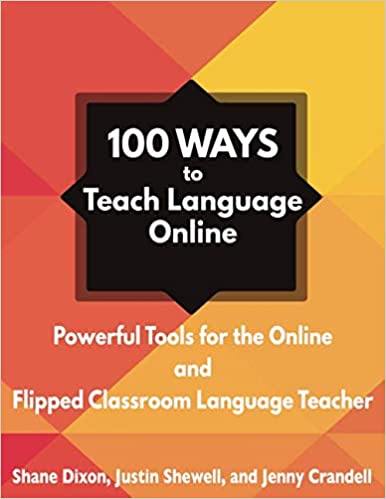POSTS
I am sure many teachers have seen, or at least heard of Maslow's hierarchy of needs. In the education world, this hierarchy is the basis for policy decisions like offering free or reduced lunch and breakfasts at schools, and many other decisions made in the best-interest of students. For those who are not familiar with Maslow's hierarchy of needs, the basic premis is that for an individual to be able to achieve self-actualization, which is where learning takes place, all the more basic needs need to be met. If a student is hungry or homeless, they won't care much about basic algebra, right? If they don't have love or respect, then it is harder for them to care about improving themselves.
This hierarchy is a great analogy for many things. During this pandemic I have been doing a lot of thinking and fielding questions from colleagues around the world, and one of the questions that continues to come up is the question of how students can be successful in online learning. Obviously, ...
Read moreThis post was first published on the TESOL blog on July 9, 2020.
I remember the first TESOL Convention I attended in Vancouver, BC in 2000. I was still a student and we had organized the first ever group of students from our program to attend the Convention. I was overwhelmed by the number of sessions, the networking opportunities, and the camaraderie of all the attendees. It was a wonderful experience that cemented me in my career choices and helped me become a better teacher.
Since then, I have attended 17 more TESOL Conventions, and had similar experiences at each one. That is, until this year, when the COVID-19 crisis forced the cancellation of the TESOL Convention in Denver. As a board member of TESOL, I can share with you that cancelling the convention was one of the hardest decisions the Board has ever had to make, and we are still dealing with the ramifications of cancellation. Truly, it is a difficult time for the Association and the profession.
Despite the difficulties, ...
Read more
The TESOL International Association (https://www.tesol.org) published a short pamphlet that outlines six principles teachers should follow to be exemplary teachers of English learners (http://www.tesol.org/docs/default-source/books/6P/6p-quickvisualguide_web.pdf?sfvrsn=0). I agree with all of these six principles, and these are what my colleague Dr. Shane Dixon and I teach our students who are planning to become English teachers in our award-winning MOOC, Teach English Now (https://teachenglish.asu.edu). However, as I was looking at these six principles, I realized that one thing was conspicuously missing: technology.
I don't think they left off technology because they think it isn't important. I think left it off because it really applies to all six principles and so it shouldn't be considered a principle by itself. Technology is becoming so important to teaching that exemplary teachers, or all teachers really, MUST use technology if they want to be effective. In this post, I ...
Read more
Live-polling is one of the best ways for teachers to see how much their students have learned or understood a concept. There are many ways to use live-polling in the classroom. (For 5 ways I use live-polling in the classroom, see my post entitled 5 Ways to Use Live-Polling in the Classroom). One of the best live-polling tools is an application called "Socrative" (I pronounce it "SAH-kre-tiv", but some pronounce it "so-KRA-tiv"). Socrative lets students use their devices to submit answers in real-time and can help teachers easily see how much students understand something. This allows teachers to adjust their teaching to their students' understanding, helping students master concepts more quickly and more easily. The videos below will help you learn how to use Socrative.
1. Socrative Live Demonstration
This video demonstrates what Socrative looks like from both the teacher's and student's view. If you've never seen Socrative in action, it will give you a good idea of what to ...
Read more
As a teacher, it often takes time to truly determine if every student is mastering the concepts you are trying to teach. Teachers will often walk around the classroom while students are working on assignments, offering help if needed, their main goal to find out who has understood and who has not. Some teachers will give frequent quizzes and tests as a way of discovering where lack of understanding lies and where more instruction is required. Methods such as these take a lot of time and effort, and the results can be vague and not very informative. If only there were a way for a teacher to ask a question and instantly get a response from every student at the same time so they could determine who has learned and who has not, and where further instruction is required.
But, wait! There is a way. It's called live polling. Teachers can use live polling to elicit a response from every student, and then instantly collate those results to inform their teaching in the classroom. Technology ...
Read more
More and more, teachers are being asked to interact with students online. For many teachers, the online classroom is vastly different than their face-to-face teaching setting, and there is whole new set of challenges and skills required to be successful. The following tips are excerpted from my book entitled, "50 Ways to Teach Online: Tips for EFL/ESL Instructors" (available for purchase by clicking the link on the right side of this page).
Designing Instruction (Tips #3 and #4)
While you may be able to walk into a face-to-face class and “wing it,” doing so in an online setting will only result in disaster. Your students will not know what to do and where to go without specific instructions. They will not accomplish your learning objectives if you do not lead them in the right direction. Creating a successful online learning experience begins with deliberate application of instructional design principles. There are almost too many different theories of instructional design to ...
Read more
With mobile devices being so ubiquitous nowadays, more and more, schools are realizing they don't need to spend thousands of dollars purchasing devices for students, and are adopting Bring Your Own Device (BYOD) technology integration models. For teachers, these models present several challenges, the least of which is knowing what to do with students' devices in the classroom. If you are a teacher in this situation, hopefully these 10 tips will help you make the most of students' devices in your classroom.
1. Stay Connected
Without a connection to the Internet, many of the benefits of having technology in your classroom are impossible. Hopefully your school provides a reliable Internet connection that you and your students can use. Maintain a close a relationship with your school's technology coordinator so that you stay informed about changes in the school's network policies and configurations and how they might impact your students' use of the Internet in your classroom. If ...
Read more
1. Know your content
There is a common myth that anyone who can speak a language can teach that language, but any experienced English teacher knows this is not true. The best teachers know more about English than simply being a native speaker. They've studied grammar and know what a noun, verb, adjective and adverb are. They understand how clauses come together to make a sentence. They've studied vocabulary and can explain how words are formed. They understand collocations and what metaphors, idioms, and lexical phrases are. They've studied pronunciation and know how various sounds are formed in the mouth. They understand the importance of intonation and stress in conveying meaning. They understand how language is used for communication.
2. Know your pedagogy
Effective language teachers not only know about English, but they also know the best teaching methods to help others learn English. They understand the difference between communicative and audio-lingual methods and which ...
Read more



